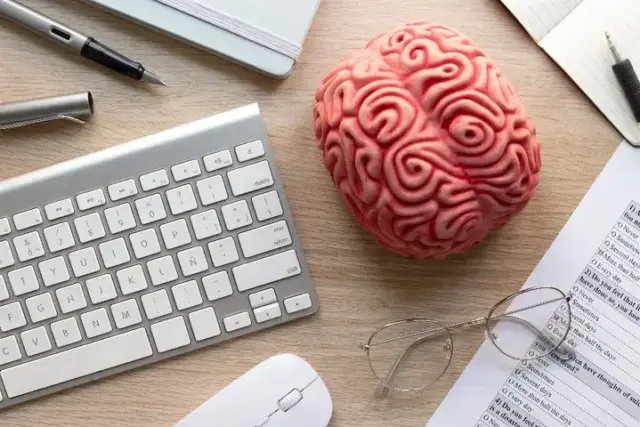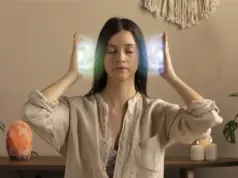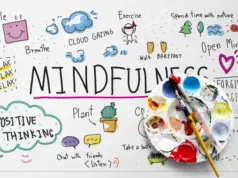PsychoGeometrics is a psychological framework that reveals insights about an individual’s personality and behavior based on their preference for specific geometric shapes. This concept, though relatively less known in the mainstream, has proven to be a powerful tool in understanding human interactions, communication styles, and decision-making processes. Let’s dive into the core ideas behind PsychoGeometrics and its relevance in the Indian context.
What is PsychoGeometrics?
PsychoGeometrics is built on the premise that people unconsciously associate themselves with particular geometric shapes. These shapes are indicative of their personality traits, cognitive processes, and ways of interacting with the world. The theory suggests that our shape preference is a mirror of our inherent characteristics, revealing details about how we think, react, and engage with others.
The basic shapes associated with PsychoGeometrics are:
- Square
- Triangle
- Rectangle
- Circle
- Squiggle
Each shape has its unique set of characteristics that reflect different personality types. Understanding these shapes and their meanings can help you gain deeper insights into your own personality and those around you.
The Five Shapes and Their Meanings
- Square: People who resonate with the square shape are typically organized, detail-oriented, and methodical. They value structure, precision, and stability in their lives. In the Indian work environment, squares are the dependable individuals who excel in administrative roles, accounting, and tasks that require meticulous attention. They are the ones who will create lists, stick to plans, and follow procedures diligently. This personality type is often seen in professions like teaching, engineering, and finance.
- Triangle: Triangles are natural leaders and decision-makers. They have a clear vision, are goal-oriented, and tend to focus on results. In India, people with this personality type are often drawn to leadership roles in business, politics, or entrepreneurship. They are ambitious, strategic thinkers who can guide teams toward achieving objectives. Their ability to see the bigger picture makes them effective in fast-paced environments where quick decision-making is essential.
- Rectangle: Rectangles represent a state of transition. Individuals who identify with this shape are in a phase of growth or self-discovery, seeking change and new experiences. In the dynamic Indian society, where career shifts and personal growth are becoming increasingly common, rectangles are those who are constantly exploring and learning. They may be professionals changing their career paths, students seeking the right direction, or anyone experiencing a transformation in their personal lives.
- Circle: The circle is the shape of harmony and empathy. People with this personality type are nurturing, understanding, and excellent communicators. In the context of Indian culture, which places high value on family, community, and social bonds, circles are the glue that holds groups together. They excel in roles that require relationship-building, teamwork, and a supportive nature. Circles are often found in professions like counseling, social work, and human resources.
- Squiggle: Squiggles are the creative, spontaneous, and free-spirited individuals. They thrive on new ideas, innovation, and artistic expression. In India’s diverse cultural landscape, where creativity is celebrated in fields like Bollywood, art, fashion, and music, squiggles are the ones pushing boundaries and bringing fresh perspectives. Their unconventional approach to life often leads them to careers in the arts, advertising, media, and design.
The Relevance of PsychoGeometrics in India
India’s cultural and professional landscape is incredibly diverse, and understanding PsychoGeometrics can be a valuable tool in both personal and professional spheres. In workplaces, it can help in team-building, improving communication, and fostering collaboration. For instance, recognizing that a colleague is a ‘square’ may help you appreciate their need for structure, while understanding a ‘squiggle’ personality can help you channel their creativity in the right direction.
In educational settings, this knowledge can guide educators in understanding students’ learning preferences. Circles may prefer collaborative projects, while triangles might excel in competitive environments that challenge their leadership skills. As India continues to emphasize holistic education and personal development, incorporating PsychoGeometrics can lead to more tailored and effective teaching methods.
Practical Applications in Daily Life
PsychoGeometrics can also be applied in everyday interactions, helping you understand family dynamics, friendships, and even romantic relationships. For example, if your partner identifies as a circle, being empathetic and communicative will strengthen your bond. If your friend is a rectangle, offering support during their transitional phases can deepen your connection.
Moreover, this concept can be a guiding principle in self-awareness and personal growth. By identifying your shape, you gain a clearer understanding of your strengths and areas of improvement. This self-awareness can empower you to make better decisions, set realistic goals, and navigate challenges with confidence.
Embracing the Power of Shapes
In conclusion, PsychoGeometrics is more than just a psychological tool; it’s a gateway to understanding the complex layers of human behavior. In India, where social interactions and relationships play a crucial role in personal and professional success, this framework offers a unique perspective on enhancing communication and collaboration.
By embracing the power of shapes, you not only gain insights into your personality but also learn how to engage with others more effectively. Whether you’re a square, triangle, rectangle, circle, or squiggle, PsychoGeometrics provides the key to unlocking a deeper understanding of yourself and the people around you.
Images credits : Freepik












































